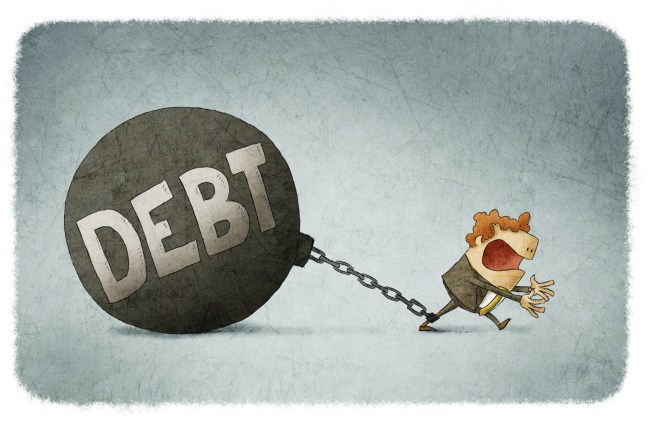
When we hear the word debt, our skin crawls. Unfortunately it’s a part of minute to minute conversations. Mention of it drives us to check our bank accounts and start acting to get rid of it. Checking your credit-card balance or student-loan balance is enough to ruin your week sometimes. We’ll sell stuff, get second jobs, call in every penny we ever lent out. It’s a bad scene. So maybe you don’t have to pay it off immediately.
We know, it’s an easy thought to scoff at. You’re thinking, “the 19 percent interest rate alone could put me in a shallow grave, why the sh*t would I want to keep this monkey on my back?”
Well, according to some recent trends, you might want to learn how to live with that monkey. In a recent article on Moneyning, a very valid point is raised:
My weight used to yo-yo (but continue to move ever-higher) because I’d tackle those 10 or 15 pounds aggressively to reach a desired target. I’d spend six to eight weeks depriving myself and exercising more than usual. Once I hit that target, I’d slowly return to old habits. That’s because the dramatic changes in my eating and exercise habits were unsustainable.
The same might be true of your finances. You can deprive yourself of everything you like to spend money on for a short period of time, but are you really tackling the root of the problem? My cyclical weight gain wasn’t my problem — it was a symptom of my lack of good habits. You might fall into the same trap when you pay down debt very quickly.
Getting rid of your debt in a short span of time is all well and good. But if it’s achieved through unsustainable practices, you might be doing more harm. Managing your money wisely seems to be the answer. A recent study by the Harvard School of Law Bankruptcy Data Project even discovered that one third of those who file for bankruptcy fall back into it very shortly thereafter.
So manage your money, and if possible avoid debt all together. If you have debt though, like 80 percent of americans, paying it off might be much more of a marathon than you thought, and that’s not a bad thing.
(Via Moneyning)






